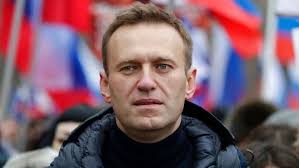The EU imposed sanctions on Thursday on six Russian individuals and one organisation over the poisoning of leading dissident Alexei Navalny, in spite threats from Moscow of retaliation.
High-ranking officials such as Federal Security Service Director Alexander Bortnikov, Deputy Chief of Staff in the Presidential office Sergei Kiriyenkoa and two deputy defence ministers.
The officials will have their assets frozen and be banned from travelling to the EU.
State Scientific Research Institute for Organic Chemistry and Technology, involved in the development and production of chemical weapons, is also sanctioned, as the official legal journal of the EU shows.
The punitive measures are effective immediately.
Navalny, a fierce critic of President Vladimir Putin and prominent anti-corruption campaigner, fell ill on a domestic flight in Siberia on August 20.
He was released from the German hospital where he was treated in August and remains in Germany.
Last week, the Organisation for the Prohibition of Chemical Weapons (OPCW) confirmed tests that the Soviet-developed nerve agent Novichok – a banned warfare agent – was used in the attack.
Navalny says he believes Putin ordered the crime.
Moscow has denied any involvement and questioned whether Navalny was poisoned at all.
The agreement to move on sanctions on Russia was taken by the bloc’s foreign ministers on Monday.
Russian Foreign Minister Sergei Lavrov threatened the EU with an equivalent blacklist of individuals on Wednesday.
The EU already sanctioned Russian intelligence officials following the use of Novichok in a 2018 attack on former Russian double agent Sergei Skripal and his daughter Yulia in Britain.
EU Sanctions High-Ranking Russian Officials for Navalny Poisoning
- Advertisement -
- Advertisement -
- Advertisement -
- Advertisement -
- Advertisement -

